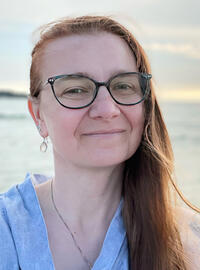The Cultural Advisory Council Welcomes Poland
The Cultural Advisory Council Welcomes Poland
By Krystyna Wardega-Piasecka, Sandnes, Norway
It was an honor for me to introduce Poland on behalf of the Foundation’s Cultural Advisory Council. Especially since, as an ordinary Polish reader who currently lives in Norway, I didn't think I could face such a special responsibility. During my presentation at the October meeting of the Board of Trustees, I wanted to introduce Poland in such a way as to allow others to get to know the Polish nation better. Out of a huge number of facts, I presented those that are not commonly known. To me, it is the people, not the territory, that form the country.
Poland is often referred to as an Eastern European country. This term is related to nomenclature dating back to the Cold War or earlier. Depending on the type of criterion adopted, the geographical center of Europe is located somewhat east of Poland.
Poles along with Indo-Europeans belong to the cultural group called Slavs, which brings together many ethnic groups sharing similar values, culture, and beliefs. Let the Slavic attitude, which captures values outlined in The Urantia Book, be commonly known: “Guest at home, God at home.”
European history, including Poland, is turbulent. In the last millennium, Poland's borders have changed many times. After the union between the Polish and Lithuanian nations, the territory was partitioned by neighboring countries three times, until it disappeared from world maps for 123 years. Subsequently, the territory was the scene of two world wars, as well as the Cold War. It was the shared values and ideals that held the society together and allowed it to survive.
Here is a time-lapse video showing the borders of Poland from 990 to the present. https://www.youtube.com/watch?v=66y49BnxLfQ
Numerous university studies are devoted to the Polish-Lithuanian Commonwealth. A special research center dedicated to the historical, social, and cultural legacy of this very union has been established at the University of Aberdeen. This commonwealth, established in 1569, was one of the largest—if not the largest—European states of its time. Some researchers note that this union was something different from earlier and later ones, and call it a “fraternal union of people, not states.”
One feature worth mentioning is the liberum veto—based on the thesis that there will always be someone righteous to say “I disagree”—the right of an individual to end a session of the Sejm (the national legislature). Others include the first free royal elections (1573); the merger of the Orthodox Church with the Roman Catholic Church (1596); and Europe's first, and the world's second, constitution (1791).
Statistics Office surveys show homogeneity of religion. As many as 90% of those surveyed declared their belonging to the Roman Catholic Church in 2018. However, there have been significant changes in recent years. The Center for Public Opinion Research (CBOS) shows that there has been an overall continuous decline in people participating in religious practices. The younger the group, the higher the percentage of non-practitioners. This decline suggests that Poles may declare their faith but are moving away from the institution of the church.
Poles are a nation of hardworking, courageous, resourceful, and persistent people of action. A country of many Nobel Prize winners, explorers, discoverers, mathematicians, physicists, writers, and artists whose achievements we benefit from every day. You probably know of more than one famous person from Poland but wouldn’t suspect them of being born there.
The tumultuous history of Poland has led to mistrust among Poles. Perhaps this explains why activities relating to The Urantia Book tend to be mostly individualistic. Sociologists have predicted that Poles will eventually overcome generations of inherited distrust and begin to act together, sharing insights. They will broaden and enrich each other's perspectives and insights through cooperation.
With almost 8,000 books in print, the number of readers of Księgi Urantii is growing. It will be good to see a cohesive community grow through participating in Polish study groups, Urantia Book International School online courses, and social media. It is in the youngest generation of seekers that the power to make change lies, and it is in their direction that we should look.
In 2023, the four members of the Cultural Advisory Council will be planning virtual meetings between local readers and Foundation trustees. This could bring important and positive changes for what is one of the most numerous European reading groups.
